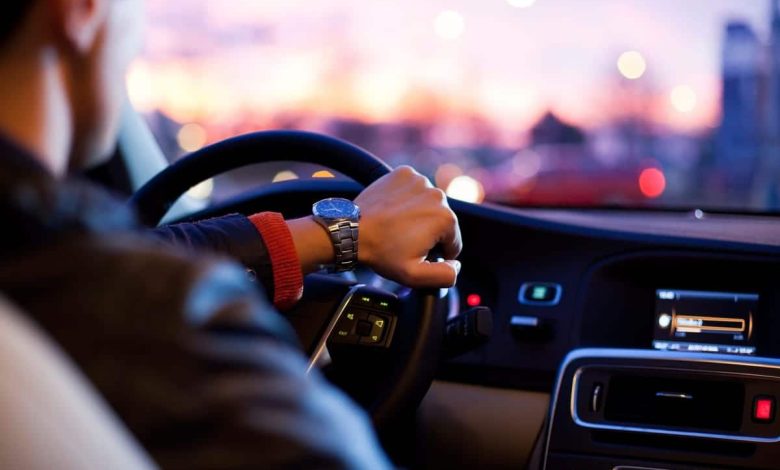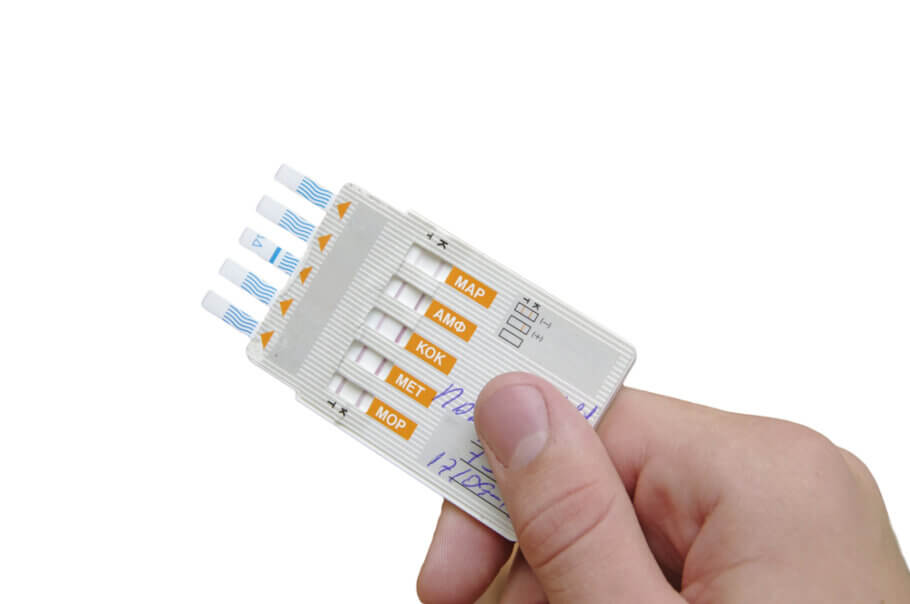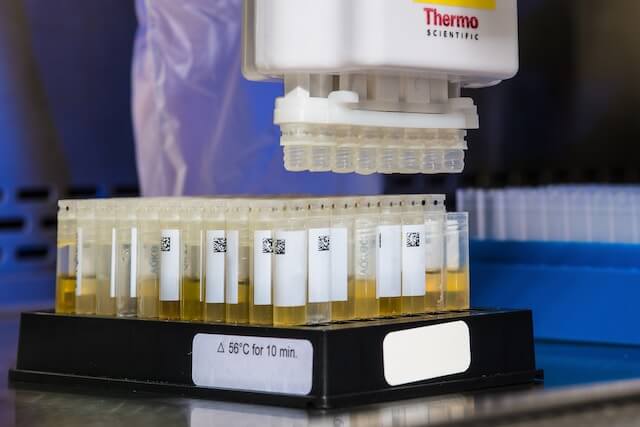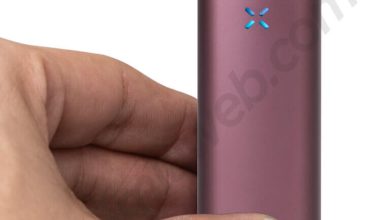How does the THC drug test for driving work in Germany?- Alchimia Grow Shop

As you may know, cannabis has recently been legalised in Germany in a political move that many other European countries are eager to see on their own territory. Naturally, this legalisation has been accompanied by a series of laws and regulations that all users must respect if they do not want to come into conflict with the German administration, and the issue of driving under the influence of THC is no exception.
Today we are going to tell you everything you need to know about this controversial topic, as it is known that tests to detect THC in saliva confirm its presence in the body (in fact, that of the metabolite 11-nor-9-carboxy-THC, also called THC-COOH), without determining whether the person has consumed it a week ago or a few minutes ago. Let’s see below how this issue will develop in Germany.
Drugs and driving in Germany
In Germany, roadside drug checks are particularly strict for cannabis users, affecting both recreational users and medicinal patients. These checks begin with rapid saliva tests, and if the result is positive, a blood test is performed that accurately measures THC or tetrahydrocannabinol levels.
The legal limit for THC set by the Bundestag, following recommendations from the Ministry of Transport, is just 3.5 nanograms per milliliter of blood, meaning that even small amounts can result in penalties. This limit is equivalent to 20 mg of alcohol per 100 ml of blood. Mixing alcohol and cannabis is also prohibited to avoid combined effects, and there is a total ban on cannabis for new drivers (under 21 or with a license for less than two years). Germany is thus following in the footsteps of other countries such as Malta or Luxembourg in legalising personal use of cannabis in Europe.
The following fines and penalties will apply for failure to comply with the regulations:
- 500 euros and a one-month driving ban for having 3.5 nanograms or more of THC in the blood (this ban may have exceptions in cases of medicinal cannabis prescribed by a health professional).
- At least 1,000 euros for mixed consumption (cannabis and alcohol).
- Up to 3,500 euros for repeat offenses.
- For novice drivers during the two-year probationary period or under 21, driving under the influence of cannabis is banned, and fines of 250 euros per offence are imposed.
In addition to these penalties, the driver must pass the MPU, a psychotechnical test known for its difficulty and cost, which we will discuss later. However, is it possible to appeal this process and receive an amnesty? What conditions should be met? An amnesty can only be considered under strict conditions; according to Section 13a FeV, the driver must not be addicted to cannabis or show signs of abuse. In addition, the violation must be the first related to cannabis use while driving. The THC-COOH value must also be below 150 ng/ml.

Types of controls and tests
Police use rapid saliva tests to detect the presence of drugs. If the saliva test is positive, the next step is a blood test, which provides a more detailed assessment, differentiating active THC from metabolites, allowing to determine whether consumption was recent or not. Blood tests are crucial to accurately measure THC levels and decide on appropriate penalties. You can find much more information about the different types of drug tests in the following article:
Drug tests: what they are and how they work
Today we are going to delve into the tests that are usually used to track drugs in the body, tests that are increasingly common in different areas of our lives. What types of toxicological analyzes are there? Which are the most used and for what? Are they really reliable? How long do drugs last in the body before being undetectable by these tests? In this article you will find all the answers.
THC limit and penalties
Germany sets a very low threshold for THC in the blood, meaning that even moderate users can exceed the limit long after they have consumed it. If a concentration of more than 3.5 nanograms per milliliter is detected, the offender faces fines of at least 500 euros, the loss of points on the license, and a suspension of the license for a minimum of one month. In some cases, and as we have already mentioned, the sanctions are aggravated by the obligation to take the MPU, a comprehensive test to verify driving fitness. These are the sanctions provided for different cases:
First drug offense:
- A fine of 500 euros
- 2 points on the license
- 1-month driving suspension
Second drug offense:
- A fine of 1,000 euros
- 2 points on the license
- 3 months driving suspension
Third drug offense:
- A fine of 1,500 euros
- 2 points on the license
- 3 months driving suspension

The MPU exam and its difficulty
A medical-psychological evaluation (MPU) can be requested by driver licensing authorities for all drug-related offenses, such as driving under the influence of substances such as amphetamines, cannabis, LSD, or cocaine. The most common is the MPU for cannabis use, with a THC limit of 3.5 ng/ml. Unlike alcohol, an MPU can also be ordered if you are caught with illegal drugs, even without driving.
The MPU (Medizinisch-Psychologische Untersuchung) test is a comprehensive assessment process designed to determine whether an individual is fit to drive again after being convicted of drug use. This test includes a medical and psychological assessment and is notoriously demanding. Many drivers fail it on their first attempt, leading to further delays in regaining their driving license. In addition, the MPU is expensive, with a price tag that can exceed €1,000, placing a significant financial and emotional burden on those affected.
MPU Process Summary
- Medical exam: Evaluates your general health and medication use, discussing your history of drug use.
- Performance and response test: A computer-based test that assesses your ability to react and concentrate. If you fail, you may be subject to a driving behavior observation.
- Psychological interview: This focuses on your violations and on showing that you have positively changed your behavior and thinking. You should be prepared to talk about your drug use and your mistakes in traffic.
THC and urine tests – How to pass them?
Urine tests are widely used to detect THC, the main psychoactive component of cannabis. These tests look for THC metabolites in the urine, indicating recent use. However, it is important to note that the results can be positive even weeks after consumption, raising questions about privacy and individual rights. Today we tell you everything about this type of test.
Impact on medicinal cannabis users
Patients who use medicinal cannabis will be allowed to drive as long as they have a prescription from a healthcare professional specifying that the patient is taking cannabis under medical prescription. As such, patients are generally advised to carry a copy of their latest prescription for controlled medicinal drugs (BtM) and a cannabis identification card completed by the physician to prove the legal use of medicinal cannabis.
Alternatively, the doctor can issue a certificate via his or her consultation software confirming that the patient is taking medicinal cannabis as a treatment. In any case, and to make life easier for patients without compromising the safety aspect on the road, it would be desirable to have more clearly defined legal requirements for cannabis patients’ participation in traffic, for example with a higher limit for THC content in the blood.
Conclusions
In short, drug testing on German roads presents a major challenge for cannabis users, especially for recreational use. The low legal threshold for THC in the blood, combined with strict penalties and the possibility of having to undergo the costly MPU, can land offenders in hot water, with fines, points removed from their license, and even a temporary ban. To avoid legal complications, cannabis users must be extremely cautious when planning their journeys, ensuring they do not drive if they might have THC in their system, and always carrying their relevant documents if they are medical patients. German traffic laws are severe, and non-compliance can have serious repercussions.
You have been warned!






